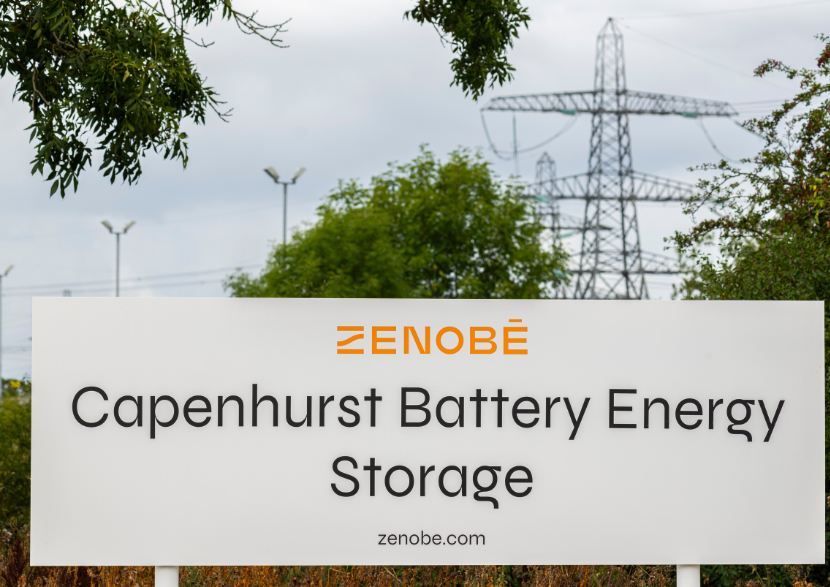Menu
Chester Office
Well House Barns
Bretton
Chester
CH4 0DH
Manchester Office
1st Floor
Barfield House
Alderley Road
Wilmslow
SK9 1PL
Newcastle Office
Maling Exchange
Studio 307
Hoults Yard
Walker Road
Newcastle Upon Tyne
NE6 2HL


Zenobē won the tender to provide reactive power services using their innovative battery storage technology. As experts in managing large-scale and often controversial planning projects, we were appointed to help secure consent for this pioneering facility, which would be the first in the world to absorb reactive power directly from a transmission network. Images courtesy of Zenobē.
Renewable energy projects are recognised as essential to achieving the government’s net zero target by 2050. However, increasing levels of intermittent and distributed energy generation is putting a strain on the National Grid’s transmission system.
Energy frequency and voltage are managed within a narrow operating range to avoid damaging the transmission network, which could result in large scale power cuts. Within the Mersey region, a problem exists in that the provision of reactive power is unstable. Reactive power services, traditionally provided by fossil fuel plants in the area, are used to ensure voltage levels are within a given range.
The Capenhurst project we worked on with EV fleet and battery storage specialist Zenobē was commissioned as a direct response to the National Grid’s pathfinder programme, seeking to solve the challenge of reactive energy management in the region through the use of innovative technology.
Our specialists supplied a range of services to Zenobē, from facilitating the planning application and ensuring the design mitigated environmental effects to coordinating specialist environmental studies and liaising with the client and local council representatives during determination.
Zenobē won the tender to provide reactive power services using their innovative battery storage technology, identifying a potential development site within the green belt close to the National Grid’s Capenhurst substation in Cheshire.
As experts in managing large-scale and often controversial planning projects, we were appointed to help secure consent for this pioneering facility, which would be the first in the world to absorb reactive power directly from a transmission network.
Axis worked closely with Zenobē’s design team to minimise the impact of the proposed development on the green belt, local residents and ecology. We developed a compelling need case to justify very special circumstances for inappropriate development in the green belt, along with landscape design proposals that would integrate the development and provide biodiversity gains.


Planning consent was secured for the world’s first battery capable of absorbing reactive power directly from the grid, helping stabilise the system and enable further adoption of renewable power sources.
Zenobē’s site will address power supply issues in the Mersey region, delivering clean, secure energy at a substantially lower cost to consumers. Over the next 15 years, the project is predicted to avoid one million tonnes of CO2 from being released into the atmosphere – equivalent to taking 216,044 diesel and petrol cars off the road.
Phil Roden, Director at Axis, said: “This is a huge milestone – not just for Axis, but for the UK and its ambitions in the race to net zero. Battery storage will play a major role in moving the UK from carbon intensive to emission free power.”
James Basden, Co-Founder and Director of Zenobē, commented: “As we move to a cleaner energy system, batteries like this one will play a vital role in stabilising the grid and ultimately enabling a greener, more sustainable Britain.”
Well House Barns
Bretton
Chester
CH4 0DH
1st Floor
Barfield House
Alderley Road
Wilmslow
SK9 1PL
Maling Exchange
Studio 307
Hoults Yard
Walker Road
Newcastle Upon Tyne
NE6 2HL
We’re expanding into the North East with an office in the heart of Newcastle. If you’re looking for expert planning guidance, this is an exciting opportunity for collaboration! Find out more about how we can help you
Now serving the North East!
We’re expanding into the North East with an office in the heart of Newcastle. If you’re looking for expert planning guidance, this is an exciting opportunity for collaboration!